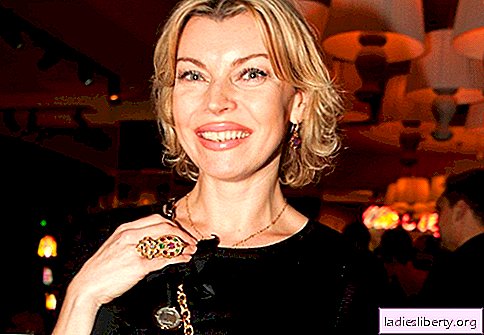
Autism is 4 times more common in boys than in girls. For the first time, scientists from the Department of Human Molecular Genetics at the University Hospital Heidelberg found an explanation for this phenomenon. Studies of mouse brain regions have shown that testosterone activates certain risk genes before and after birth. The results were published in the journal Molecular Neurobiology.
What is the relationship between autism and testosterone that scientists have identified?
Until now, it was known that defects in specific genes affect the development of nerve cells.
New results show that these genetic “breakdowns” have a greater effect on the brains of men than women.
Scientists have first evidence of why boys have a significantly higher risk of autism. Studies have shown that in the young brains of male mice, certain genes are increasingly "converted to proteins." This, according to experts, is affected by higher levels of testosterone - the male sex hormone.
A research team has been studying SHANK genes for years. Defects in these pieces of genetic information play an important role in the development of autism and other mental illnesses.
More testosterone - more protein?
For experiments, the team used a brain tumor cell culture as a model for the development of neurons.
In these cells, scientists found that SHANK gene activation is dependent on the binding of testosterone to the androgen receptor. When this receptor was blocked, the risk factor disappeared.
Experts were able to confirm the phenomenon in studies of brain regions of young mice in which this receptor did not form. They were significantly less likely to suffer from autism than control animals with normal receptors.
Researchers also examined the amount of protein in the brain of young male and female mice. In males who have more testosterone in their blood and brain, a higher level of protein was found.
More protein in the male brain increases the defect in the SHANK genes and leads to autism. Further research is aimed at creating new drugs that will block the "harmful" genes in the early stages.
Is the risk of the second baby boy much higher than the first?
With autism, the development of nerve cells in the brain of a child is impaired. One in 68 children (about 1.5%) suffers from a mental illness. Typical symptoms are noticeable at an early age, so the diagnosis is usually made before the 3rd year of life.
Autistic people experience difficulties in social interaction; communication and perception.
They often show special interests and abilities, as well as repetitive and narrow (restrictive) patterns of behavior. However, these features of autistic behavior can vary widely from patient to patient.
Scientists wondered how great the risk is for the second child. Until now, it was known that siblings also have a risk of 6.1 to 24.7%. In addition, boys suffer 4 times more often than girls - which the study was able to confirm.
It is now known to what extent the risk depends on the gender of the older brother and sister. Authors, including Nathan Palmer and Isaac Cohan of Harvard Medical School, have estimated insurance data for more than 1.5 million American families. Of the more than 3.1 million children, 39,000 have been diagnosed with autism.
In a woman with autism, the risk of developing the disease in male offspring is 17% higher. For female offspring, the risk is 7.6%. In contrast, the risk for boys is reduced to 13% if it is an older brother with autism.
Researchers at the Carolina Institute in Stockholm explain this by the influence of genetics on autism. To do this, they analyzed Swedish data, which included 14,516 children with autism. Therefore, genetic factors play a priority role in 83% of cases. Environmental factors have a lesser effect on people, which is 17%.
According to the latest data, the risk for the first child is 24%, for the second - 58%, and for the third - 42%. By reducing the influence of risk factors, you can reduce the likelihood of autism in humans by 10-15%.











